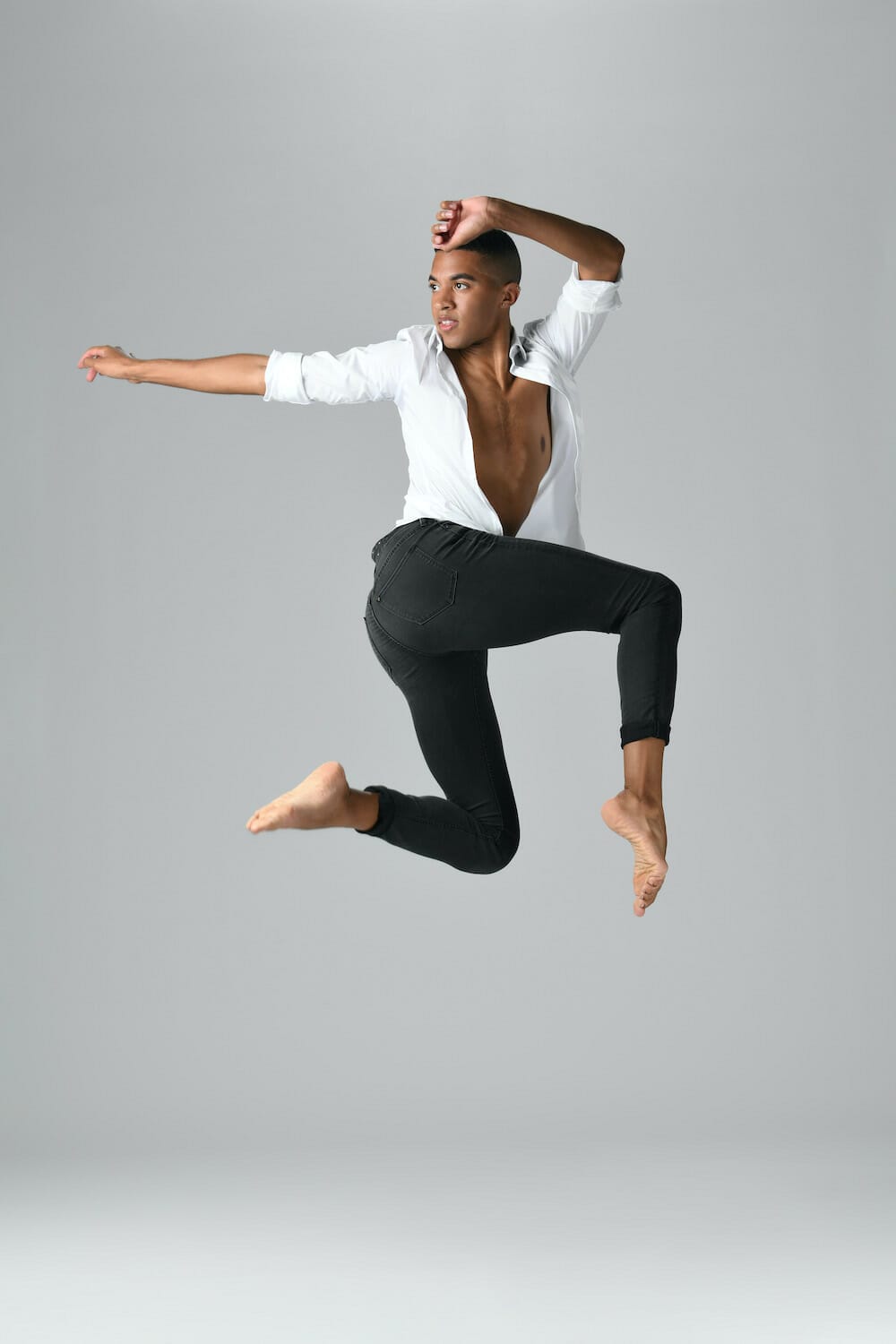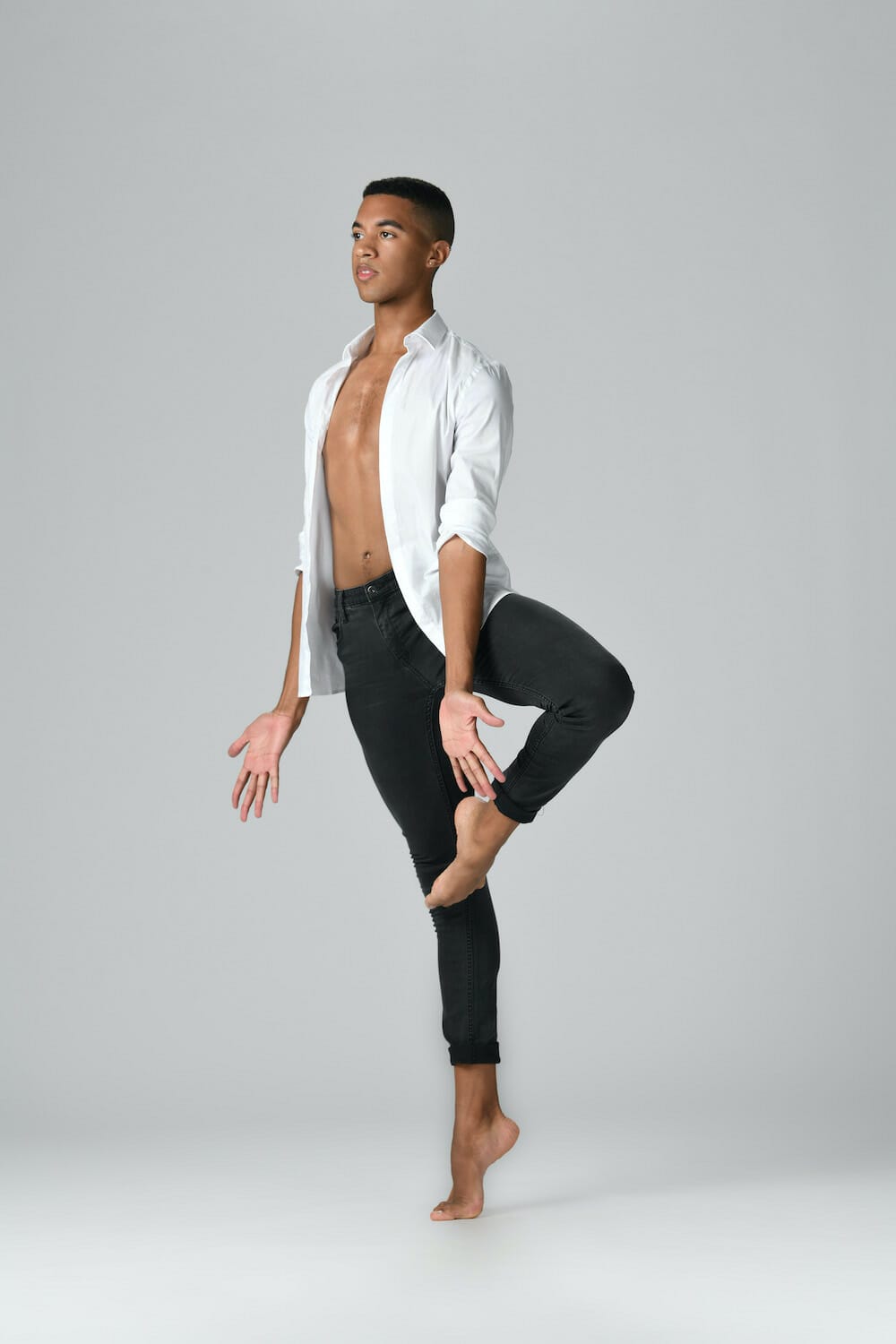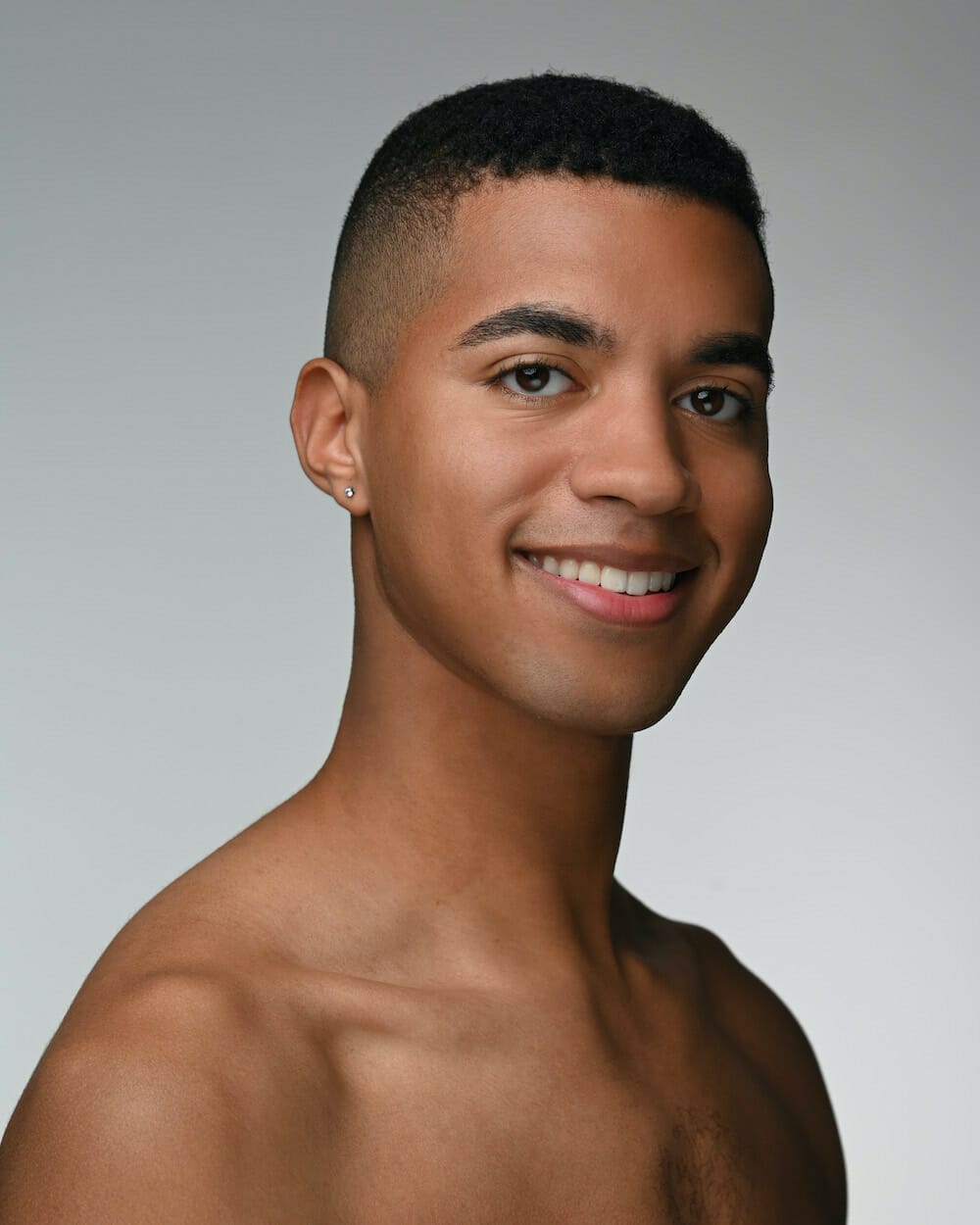Editor’s Note: Read related interviews in the George Floyd: In Memoriam roundup
Picture This Post (PTP) speaks with Nicholas Hall (NH), a dancer and digital media coordinator for Black Dance Stories. Black Dance Stories is an event where well-known dancers and choreographers share stories and conversations about the Black experience in the dance world. Nicholas Hall has most recently performed Miki Orihara, Tadej Brdnik, Nya Bowman and Martin Lofsnes’ restaging of Martha Graham’s Dark Meadows Suite and Testimony at the 2019 Alvin Ailey American Dance Theatre Spirit Gala. With Picture This Post, Hall shares his thoughts on how artists, like himself, can and should contribute to the Black Lives Matter movement by telling uncensored stories of the Black experience.
(PTP) Can you tell Picture This Post readers a bit about your personal background?
(NH) I was first exposed to dance when I saw a performance of The Nutcracker when I was 4. My mom told me my eyes lit up when I saw the Cavalier, a black man, come on stage. I had a transcendental experience and just knew that I had to dance. I first started dancing in elementary school at the age of 8. I saw that tap classes were offered and I was thrilled to start dancing. This eventually turned into me taking jazz, ballet and modern classes as well.
My family is from Haiti, and I was born in Brooklyn. At a young age, we moved to Montclair, New Jersey. Dancing is so strongly intertwined in Haitian culture. I remember going to family parties when I was younger and dancing to kompa music, and just feeling the rhythm and beat surge through me. As far as Brooklyn and Montclair, they are both super-diverse cultural hubs. In Montclair, I was not only lucky to have three dance studios to choose from, but in the public schools that I attended, there was always a strong arts program.
What do you think is the responsibility of artists to engage in the national conversation regarding Black Lives Matter?
I think it’s incredibly important for artists to engage in national political conversations. Historically, artists have always been at the forefront of these conversations. So now, in the height of the Black Lives Matter movement, it feels like we have a heightened responsibility. Further, I feel that usually these comments would have been made through movement. However, because of COVID-19, dancers and artists, in general, have had to be more creative in the ways that they participate in these important conversations. Personally, right now, I want to amplify other voices in the community. Black Dance Stories has been a perfect way to do this. I get to work with other black creatives who have been in the field much longer than I have. It is so inspiring to hear their stories and experiences, and help to share them with others.
Dancers and choreographers are storytellers — have you seen a change after George Floyd’s murder, in the stories dancers and choreographers are deciding to tell now?
Absolutely! I feel that there has been a shift away from censoring stories. I feel that previously dancers were more likely to be cautious about what they were saying regarding things that had happened to them in their past. Now, it seems that there is a solidarity in very candidly sharing the stories about uncomfortable experiences, especially those in predominantly white dance spaces.
I want to see more stories of progress being made in the dance community. I think that it is important to have a very clear understanding of where things are going wrong. However, it is so reassuring to see large dance institutions taking accountability for their previous wrongdoings and doing their due diligence to correct them. I want to be both educated on what has been happening below the surface while hearing about what is going right.
In response to the Black Lives Matter movement, what aspects of the dance industry do you hope to see changes?
I hope to see a more genuine representation of the black community in historically White dance spaces. I think that it has become so easy for these spaces to have their token one or two Black dancers, and while that is definitely a start, it is no longer enough. These companies and communities need to take accountability and truly effectively diversify their spaces.
There are many conversations happening right now regarding diversity in the industry. I think the most common one is regarding the diversity of the dancers that are being hired. However, I think that another important one considers the diversity of the administration of these larger dance institutions. It is one thing to hire a diverse group of dancers, however, it is arguably more important to have a board that is just as diverse if not more so.
How has the pandemic affected your work and you personally?
The pandemic has really made me think about participating in the dance world in a very different way. My goal before the vast shutdowns was to dance professionally, however, when this happened, almost all auditions across the field were canceled. While my dream is still to dance professionally, it has definitely had to take a pause. I have actually been focusing more on digital work in the dance community. I’ve been working on this incredible project called Black Dance Stories where I'm the Digital Media Director. I couldn’t be any luckier to work on this project because it allows me to continue to work in dance in a time that I didn’t think it would be possible. It also allows me to do my own work in creating an anti-racist dance community.
What experiences and moments in your dance career have shaped the kind of artist you are and want to be?
I would definitely say recognizing how few men were in the dance field. At first, I was embarrassed by this, especially being younger when other guys were choosing to do sports. Conversely, I realized how much privilege I received in the community as a result of being one of the few men in most rooms. It made me realize how much I need to check my privilege and acknowledge how much I was benefiting from this. It made me want to ensure that in the future, women received equal opportunity in the dance field. Even further, I want to inspire other young men to dance and break societal norms.
Nominate this for The Picture This Post BEST OF 2020???
Vote Securely! Vote Privately! And Make Your Vote Count-- as all voting should be!!
Click Readers' Choice
To watch past Black Dance Stories discussions, visit the Black Dance Stories YouTube channel.
Photos by Nir Ariel.
Read more dance reviews by dancers in the Picture This Post Round-Up, “Choreographers’ Eyes - Dancers Explain Dance”. Watch this video preview of the story here — Find more Picture This Post dance reviews in the latest roundup — CHOREOGRAPHERS WE LOVE. Also, watch a short preview video here —






Nominated for Picture This Post BEST OF 2020